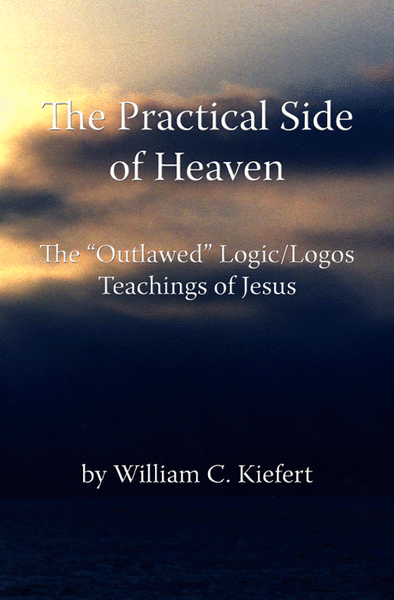
Learn more about The Practical Side of Heaven
Copyright William C. Kiefert. All Rights Reserved.
Chapter Two, Part One: What Is Logic And Reason?
“Thy will be done as it is in heaven.” These words seem like a contradiction to our ears.
Why is it so hard to imagine that a heaven on Earth might be practical? Why does it seem incongruous for something practical to have anything to do with love and kindness and harmony between people? Do we not feel torn between what we feel is good and right, on the one hand, and what we think is practical, sensible, and logical, on the other. Somehow we think that we must be either spiritual and idealistic or rational and practical. We can’t really be both! And that’s why heaven seems so impractical, and practical things seem so far removed from any ideal world which we can envision or imagine.
What would it take for a heaven on earth to become a reality? Why don’t we ask those who have clinically died and miraculously been given a second chance at life? After all, they are our closest connection to “heaven.” Pioneers who have researched the near-death experience, like Dr. Elisabeth Kubler-Ross, tell us that those who have been resuscitated and returned from “the other side” generally agree that what is really important in life is, first, to love unconditionally, or as I would say, nonjudgmentally or spiritually, and, second, to be of service to others. Moreover, it is important to be the best that we can be, which means to develop our talents and gifts, our special abilities and capacities to the highest degree of which we are capable. And, finally, it is important to encourage and aid others in the development of their talents and capacities. Just imagine what a world it would be if we lived according to these simple principles, if we did what really mattered! The change in our consciousness and behavior would usher in a new era, a kingdom of heaven on earth.
Said another way, reasoning defines the process of relating ideas, not the subject matter being related or the conclusions we reach. From this we can conclude that even though humans are born with the capacity to relate ideas, how we learn to relate ideas plays a major role in the outcome of our reasoning process. I believe that learning how to relate ideas/reason in nonjudgmental ways is the key to elevating our reasoning to the same level as our spiritual principles. When we reason nonjudgmentally, we are not reasoning according to accepted rules of logic—we are reasoning morally or spiritually without knowing it.
In effect, whereas traditionally, religion teaches us to quiet or rise above the mind, the new laws of logic that Gnostic Christianity proposes teach the mind how to reason in terms of spiritual principles. If, for example, we think of consciousness as a computer in which all thoughts are processed, we can compare nonjudgmental logic to a new software program. Just as adding a new program expands the potentials of a computer, so does nonjudgmental logic add to consciousness a new way to process ideas. This empowers us to be conscious of spiritual dimensions of reality in rational ways. This new system of logic and subsequent process of reasoning is “nonjudgmental logic.”
